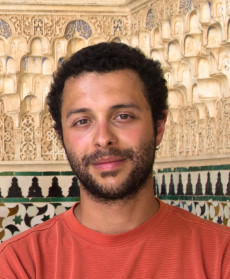CRD’s Buluç Receives 2015 IEEE TCSC Award for Excellence for Early Career Researchers
August 13, 2015
Aydin Buluç of the Computational Research Division has been named a recipient of the 2015 IEEE TCSC Award for Excellence for Early Career Researchers. Buluç is one of three recipients of this year’s award, which will be presented at the SC15 conference in November.
The IEEE TCSC annual award for young achievers in scalable computing recognizes up to three individuals who have made outstanding, influential and potentially long-lasting contributions in the field of scalable computing within five years of receiving their Ph.D. degree.
Buluç , a member of Performance and Algorithms Research Group, was honored in May 2013 with a Department of Energy’s Early Career Award for his work on energy-efficient parallel graph and data mining algorithms. He works on high-performance graph analysis, libraries, and their applications in genomics and bioinformatics.
Buluç joined Berkeley Lab as a Luis W. Alvarez Fellow after earning his doctorate in computer science from the University of California at Santa Barbara in 2010.
About Berkeley Lab
Founded in 1931 on the belief that the biggest scientific challenges are best addressed by teams, Lawrence Berkeley National Laboratory and its scientists have been recognized with 16 Nobel Prizes. Today, Berkeley Lab researchers develop sustainable energy and environmental solutions, create useful new materials, advance the frontiers of computing, and probe the mysteries of life, matter, and the universe. Scientists from around the world rely on the Lab’s facilities for their own discovery science. Berkeley Lab is a multiprogram national laboratory, managed by the University of California for the U.S. Department of Energy’s Office of Science.
DOE’s Office of Science is the single largest supporter of basic research in the physical sciences in the United States, and is working to address some of the most pressing challenges of our time. For more information, please visit energy.gov/science.










